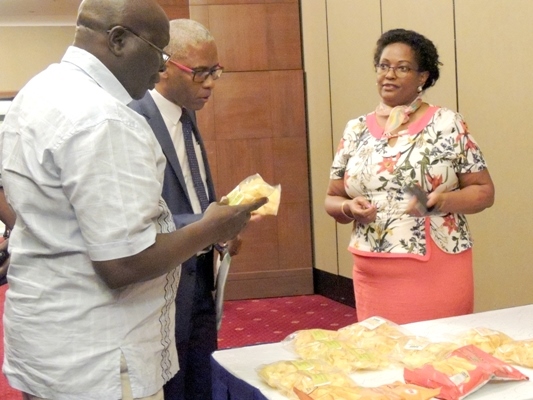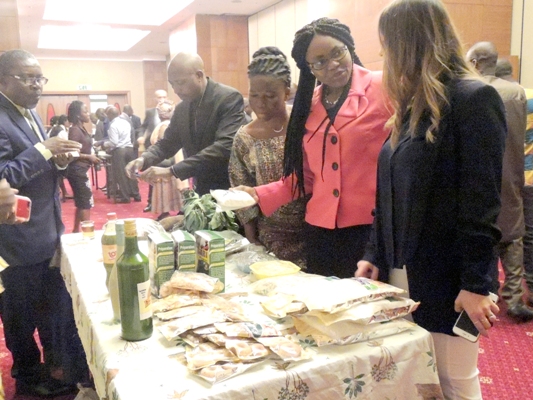human traffickingFeatures
FAO work on Potatoes boosts farmers’ incomes
A project that connects Irish potato farmers from three districts of Western Uganda with buyers in Kampala and other regional towns has been credited for helping to double production, besides increasing the value of the root crop, according to the Food and Agricultural organisation.
This was revealed at a regional workshop held in Kampala recently during which stakeholders from seven African countries shared experiences about implementation of the project titled: Market Linkages through Inclusive Business Models in the Roots and Tubers Value Chains in Africa, held
The project’s main objective is to improve the livelihoods of smallholder farmers through a value chain development mechanism that aims at giving farmers the varieties that are desired by specific markets.
In Uganda, the project was launched in 2015 in the districts of Kabale, Kisoro and Rubanda and engaged some 3000 farmers who were organised in groups and connected with buyers.
FAO’s country representative Antonio Querido said in his remarks that: “Since its inception in 2015, the project has developed the capacities of farmers’ organizations and SMEs to meet modern market demands related to larger volumes, consistency of supply and higher quality. In doing so, it has tried to address the loose and conflictual relationships between actors, and the lack of real value chain partnerships, which are needed to build synergies and accelerate upscaling of innovations.”
He added: “This resulted in an increase in tonnes of harvested high-quality potatoes, at least double the average production.”
Besides increasing output of quality potatoes, the FAO project established a National Farmers Platform through which farmers receive prices, weather, and farming tips related to potato farming on a weekly basis.
However, the project has not entirely removed the marketing obstacles encountered by Ugandan potato farmers, according to the Patricia Nsiime, the FAO Uganda National Programme coordinator on Value Chain development.
Nsiime revealed recently that efforts by some farmer groups to sell their potatoes to the Cafe Javas outlets in Kampala have been frustrated by differences in varieties. Whereas FAO and most farmers had wanted to supply the Kinigi potatoes, one of the most demanded varieties, Cafe Javas’ administration rejected the variety in favour of another they now import from Kenya.
According to Nsiime, researchers at Kachwekano Zonal Agricultural Research Facility need at least two years to breed the type demanded by Cafe Javas.
Besides helping farmers to connect to large-scale purchasers of potatoes, the FAO initiative has equipped farmers groups with knowledge on making crisps.
“The most successful formal market linkage made has been to a crisp processing plant in Kabale run by a processing plant called Katiba Traders Ltd to whom farmers supply about 1.5 tons of potato every month.”
In view of rapid rates of urbanization in Uganda, the Minister for Agriculture Vincent Ssempijja, hailed the project as a step in the right direction of increasing access to potato products especially to urban population, while at the same time, increasing incomes of farmers.
Minister Ssempijja promised to scale up the Commercialisation of potatoes in other districts of Uganda.
Comments




























